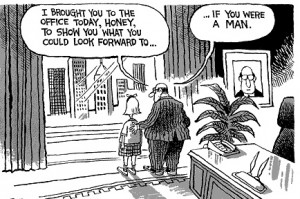Rather than dwelling on the fact that sex-selective abortions continue despite a government ban, Chinese media interpreted the sex ratio as a threat to men, not women. On Jan. 21, web giant Sina’s arm in Henan, China’s most populous province wondered aloud on social media platform Weibo whether the news was “heart-stopping” and exhorted bachelors to “start making an effort!”
Meanwhile, a Beijing statistician sharing the latest figures to his Weibo account wrote, “Tomorrow I am going to get my son to hurry up and find a girlfriend at his elementary school.” Beijing News even suggested that Ukrainian women could be a solution to China’s problem. The story kicked off with a question: “Just how hard is it for a diaosi,” slang for young bachelors of modest means, “to find a wife?”
After explaining the severe imbalance that the ratio represents, it added that Chinese brides are a popular “export” to many countries such as Japan, South Korea, and the United States, a trend it said had depleted China’s supply of eligible women still further. It offered a chart of the best destinations around the globe for Chinese men to find spouses. Japan and South Korea were particularly promising, the paper said, claiming that 26 percent of South Korean women who took foreign spouses in 2012 chose Chinese men. The trend is bound to grow, the argument went, since popular Korean television actress Park Chae-rim married her Chinese actor beau, Gao Ziqi, in September 2014.


 Contribute one to your chairty of choice.
Contribute one to your chairty of choice.

 Kathleen Kelley Reardon asks: Can you manage at work without politics? The answer to that question is, probably not. Wherever people come together seeking goals – whether the same or different ones – and especially where there is competition for scarce resources, politics is there. Political arenas run along a continuum from minimally to highly and even pathologically political. The character of the arena in which you work dictates the extent to which political acumen becomes a necessity.The political landscape where most of us work shifts over time. While it may be possible to remain a political purist (at least for a while) in some jobs in certain organizations, it is risky to wait around until politics reaches a point beyond your expertise.The more effective route is to prepare for politics. Keep in mind that not all forms of politics are devious or underhanded. Some political skills are actually no more than good people skills, like interpersonal sensitivity: knowing when to bring up which topics, when to push for something you believe is important, managing conflict to avoid unnecessary flare-ups, and causing others to feel good about working with you.Additional, relatively basic and constructive forms of political know-how include:
Kathleen Kelley Reardon asks: Can you manage at work without politics? The answer to that question is, probably not. Wherever people come together seeking goals – whether the same or different ones – and especially where there is competition for scarce resources, politics is there. Political arenas run along a continuum from minimally to highly and even pathologically political. The character of the arena in which you work dictates the extent to which political acumen becomes a necessity.The political landscape where most of us work shifts over time. While it may be possible to remain a political purist (at least for a while) in some jobs in certain organizations, it is risky to wait around until politics reaches a point beyond your expertise.The more effective route is to prepare for politics. Keep in mind that not all forms of politics are devious or underhanded. Some political skills are actually no more than good people skills, like interpersonal sensitivity: knowing when to bring up which topics, when to push for something you believe is important, managing conflict to avoid unnecessary flare-ups, and causing others to feel good about working with you.Additional, relatively basic and constructive forms of political know-how include:





